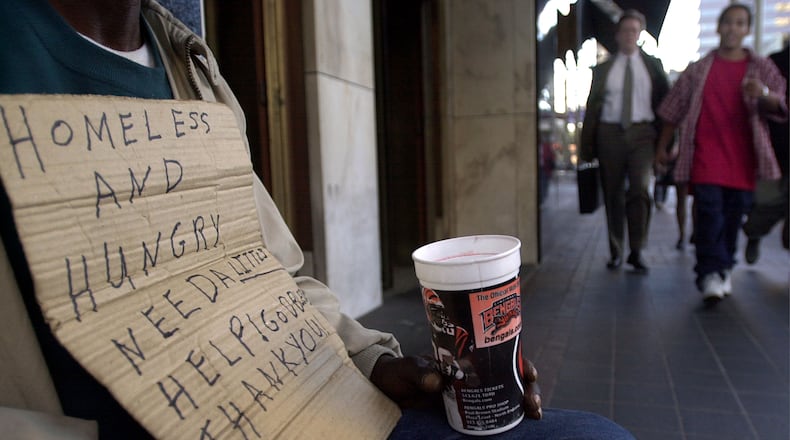The anti-panhandling rules were created five years ago to reduce the amount of solicitors and panhandlers in the city. The driving factor in this decision was wanting to improve the quality of life in the urban area.
The law required solicitors to meet the following requirements:
- Register with the police department
- Provide photo I.D. or be fingerprinted and photographed
- Only panhandle during daylight hours
- Obtain a permit to solicit
- Follow the limits on asking for money or other things of value or through written or printed word
After this law was enacted, Dayton police were allowed to arrest those who did not follow the rules, instead of just ticketing them.
The impact
According to some community members, the restrictions cut down on unwanted panhandling around the city. In the first five months of 2015, Dayton police arrested 81 people who were caught begging without a license or at unwanted locations.
>>> Panhandling activity decreases under new city ordinance
What changed?
In July 2015, the U.S. Supreme Court ruled that restrictions on content-based speech are unconstitutional. Because of this, federal courts ruled anti-panhandling regulations violate freedom of speech protections.
Assistant Public Defender Angelina Jackson argued that Dayton’s panhandling regulations are unconstitutional due to them prohibiting certain types of speech based on content.
The city of Dayton proposed ordinances would eliminate the registration program and would no longer have a set time when panhandling is allowed.
People are worried
President of the Downtown Dayton Partnership, Sandy Gudorf, said she is concerned that downtown could see higher levels of panhandling activities if the rules change.
Mike Martin, with the Oregon District Business Association, said panhandling tends to make people uncomfortable, which results in people avoiding area where they can encounter it.
Who else had these laws?
Between 2011 and 2014, U.S. communities with citywide bans on begging in public saw an increase by 25 percent, according to a report by the National Law Center on Homelessness & Poverty.
This includes Akron, which was sued earlier this year by the ACLU of Ohio. ACLU of Ohio claimed that the city’s “anti-panhandling” ordinance singled out a type of free speech that was related to charitable donations.
About the Author
